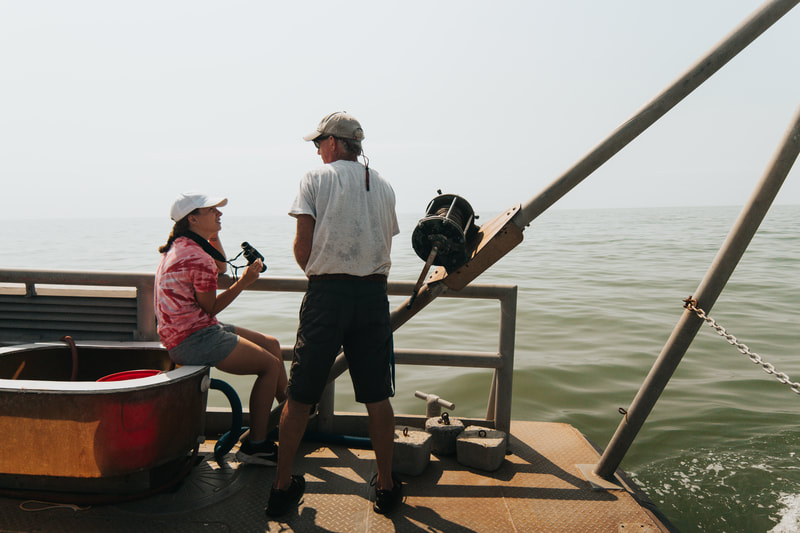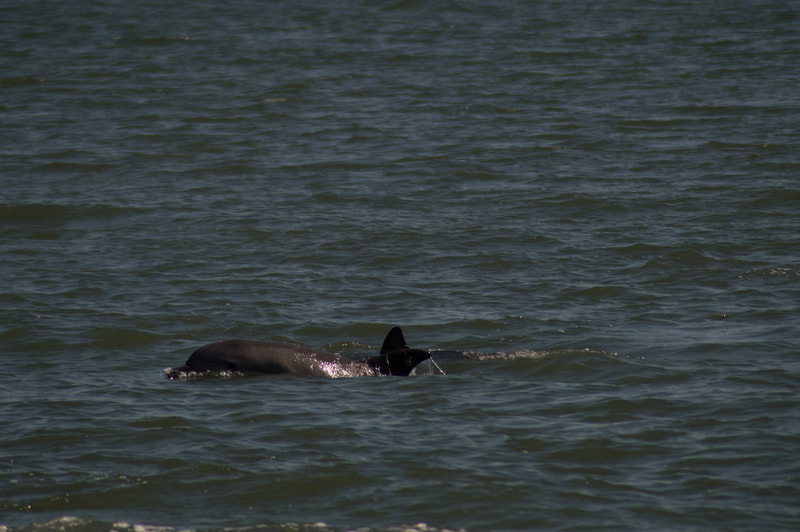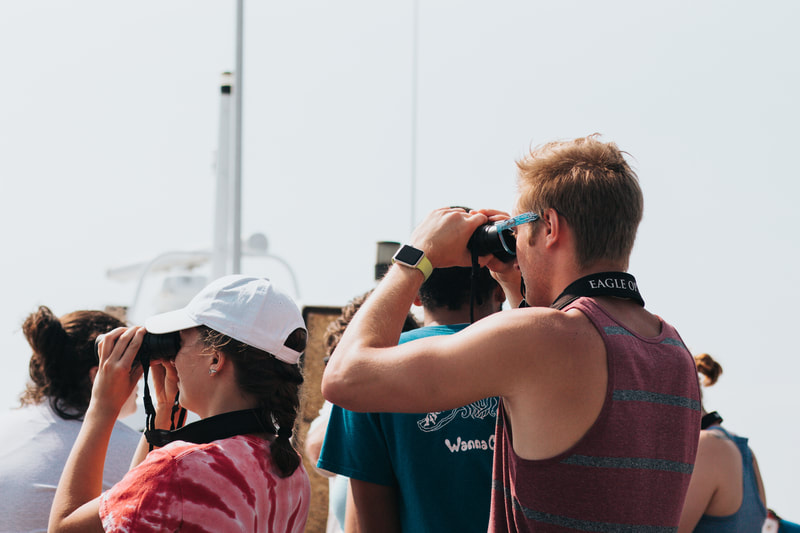MARINE MAMMALS - MAR/BIO 340
DR. GREG SILBER - KUTZTOWN UNIVERSITY
Course Description:
The student will obtain a solid grasp of the breadth and diversity of marine mammal species, their habitats, and their importance and roles in oceanic and coastal ecosystems. We will focus primarily on ecological and predator/prey relationships. By the end of the course you will be able to: describe the distribution, habitat use, acoustic communication systems, behavior, evolutionary history, and feeding adaptations for a number of marine mammal species; identify threats to marine mammals and efforts to protect them; read and understand a scientific paper effectively; and conduct basic field work on a wild dolphin population and describe your findings. We will conduct original research on bottlenose dolphins inhabiting waters near Chincoteague National Wildlife Refuge and Wallops Island.
Marketable Skills Gained from This Course:
General Description of Field Activities:
We will be conducting behavioral observations and photo-identification studies of a wild bottlenose dolphin population from via CBFS-chartered boats and a dedicated land site.
Approximate Amount of Course Time Spent in Field:
About half the class time will be spent in the field making boat- or land-based observations of bottlenose dolphins.
Prerequisites:
Five courses in biology and at least Junior class standing prior to the start of the course or permission of the instructor.
Required Textbook or Supplies:
Berta et al. 2015 Marine Mammal: Evolutionary Biology. Earlier editions are also fine to purchase.
Suggested Textbooks or Supplies:
We will be making extensive use of photographs of bottlenose dolphins for studies of the identification of individuals. It is recommended, but not required, that you bring a camera. We also will be making frequent use of binoculars for our observations. Bring your own binoculars if you have a pair you prefer.
Number of Students:
8-14
2024 Chincoteague Bay Field Station Fee*:
3 week course; housing and meals included
Salicornia; $1,794
Traditional; $1,644
Fees are subject to change at the discretion of the board of directors
* Does not include university tuition or fees. For specific policy on CBFS fees, click HERE.
The student will obtain a solid grasp of the breadth and diversity of marine mammal species, their habitats, and their importance and roles in oceanic and coastal ecosystems. We will focus primarily on ecological and predator/prey relationships. By the end of the course you will be able to: describe the distribution, habitat use, acoustic communication systems, behavior, evolutionary history, and feeding adaptations for a number of marine mammal species; identify threats to marine mammals and efforts to protect them; read and understand a scientific paper effectively; and conduct basic field work on a wild dolphin population and describe your findings. We will conduct original research on bottlenose dolphins inhabiting waters near Chincoteague National Wildlife Refuge and Wallops Island.
Marketable Skills Gained from This Course:
- Marine mammal species identification
- Marine mammal field observation and research techniques
General Description of Field Activities:
We will be conducting behavioral observations and photo-identification studies of a wild bottlenose dolphin population from via CBFS-chartered boats and a dedicated land site.
Approximate Amount of Course Time Spent in Field:
About half the class time will be spent in the field making boat- or land-based observations of bottlenose dolphins.
Prerequisites:
Five courses in biology and at least Junior class standing prior to the start of the course or permission of the instructor.
Required Textbook or Supplies:
Berta et al. 2015 Marine Mammal: Evolutionary Biology. Earlier editions are also fine to purchase.
Suggested Textbooks or Supplies:
We will be making extensive use of photographs of bottlenose dolphins for studies of the identification of individuals. It is recommended, but not required, that you bring a camera. We also will be making frequent use of binoculars for our observations. Bring your own binoculars if you have a pair you prefer.
Number of Students:
8-14
2024 Chincoteague Bay Field Station Fee*:
3 week course; housing and meals included
Salicornia; $1,794
Traditional; $1,644
Fees are subject to change at the discretion of the board of directors
* Does not include university tuition or fees. For specific policy on CBFS fees, click HERE.




